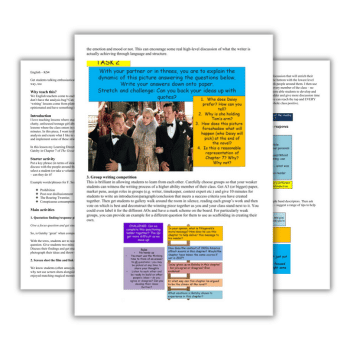Get students talking enthusiastically about literature and they’ll soon start writing that way, too. These fun and engaging activities will inspire of love critical analysis and create a ‘good noise’ in your lesson.
Experiment with and implement some of these strategies when teaching your own key literature texts.
Why teach this?
We English teachers come to each lesson armed with a love of analysing literature. But what if our students don’t have the analysis bug? Can you nurture a love of critical writing?
Absolutely! The most successful ‘writing’ lessons come from plenty of focused, energised, high-level discussion. If our students feel opinionated and have something important to write, they will be itching to get started.
Critical analysis learning objective
- Understand how to critically analyse the rivalry of Tom and Gatsby in Chapter 7 of The Great Gatsby
Starter activity
Put a key phrase (in terms of ideas in the text or context) onto the board. Students have got 20 seconds to discuss with the people around them everything they know about the relevance of this word/phrase.
Then select a student (or take a volunteer) to come and speak for 30 seconds on this topic. Put a timer on the board – can they do it?
Example words/phrases for F. Scott Fitzgerald’s The Great Gatsby might be:
- Prohibition
- Post-war disillusionment
- The Roaring Twenties
- Conspicuous consumption and consumerism
Chloe Sefton is an English teacher and Second in the English Department at Westfield Academy. Browse more free lesson plans for KS4 English literature, as well as resources for Banned Books Week.











